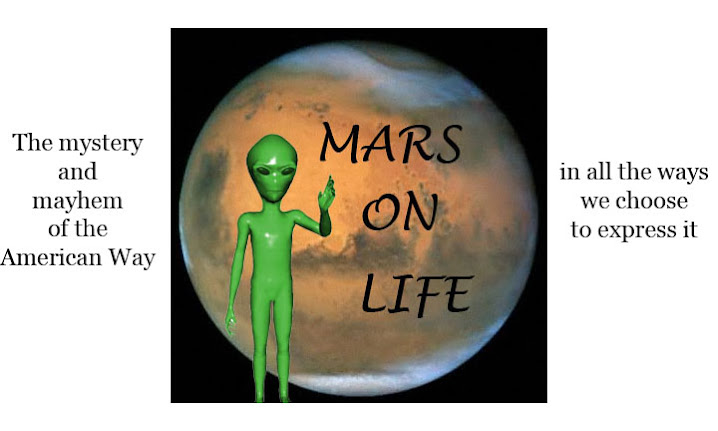
Remember "Sex"? "Sex" (David Soller) turned up in Manhattan for two consecutive So You Think You Can Dance? auditions. He couldn't dance. He couldn't comprehend why no one thought he couldn't dance. Looking as if he failed PE at PS 101, "Sex" jerked through a second audition that he claimed represented "the male sex image." What he really represented was hubris, that overarching human tendency to believe so strongly in one's abilities that one is not able to see the truth about oneself. In Soller's case, this translated into complicity with the show's producers, who gleefully featured him as a "very special treat." Soller got his airtime and the producers got their jape.
The joke is, of course, that humans can be unfortunate creatures who crave recognition and admiration far beyond their limited capabilities. This tendency is best exploited if the human in question has an appearance to match the lack of aptitude. Such was the case with Soller, who stuffed his sweatshirt into baggy shorts and who, to use cruel modern parlance, looked as if he might have come to the audition on the short bus.
Something similar was slated for Susan Boyle, the dowdy Britain's Got Talent contestant who shocked both Britain and an international cyber-audience with her rendition of "I Dreamed a Dream." The confluence of frumpish appearance, doleful back story, and emotive lyrics moved grown men to tears and advanced Boyle into the semi-final rounds.
Last evening, Boyle won her semi-final round and will move to next week's finals.
Boyle can sing, despite what sounded like a momentarily wobbly start to "Memories" from Cats. Her performance was not quite so stunning as her first, because the element of surprise had been removed. The world had already responded to Susan Boyle, and despite another evocative song choice, Internet opinion was divided. Why was this? "Memories" may be barely more mawkish than "I Dreamed a Dream" and more illuminating of Boyle's less remarkable lower register, but has the singer crested because worldwide adulation can only be a brief and fleeting affair regardless of original merit? Or because we now can no longer steal humor from pathos?
The shock of the initial audition turned into allure because of Boyle's image; in her sashed lace dress she appeared as if she had just come from church and was nervously preparing to slice an Easter ham. Predisposed to this type of contestant on talent shows and understanding that early rounds are mostly peopled by the earnestly misguided, viewers were instead moved, as if inside each and every one of us resided an ugly and untalented duckling. Boyle touched our hopes, but she also touched our fears. Her triumph was a dream or her dream was triumph, and within a week it didn't matter which came first.
Still, her triumph had a hollow ring.
There have been many beloved singers whose appearances did not fall within a pre-set definition of beauty. Kate Smith, Janis Joplin, Placido Domingo, and Maria Callas are but a few. All of these perfomers achieved iconic status without their looks playing a role. No one was stunned that Smith could sing, and although Joplin was known to be insecure about her own looks, she staggered the Monterey Pop audience not because she was unattractive and could sing, but because she sounded like no one else out there, not at that festival and not anywhere else either. Time has remembered these singers as the sensations that they were. It has not remembered them as genetic flaws with good voices.
Reality shows have turned people like Susan Boyle into curiosities. They exist both to give people who might otherwise have gone unnoticed a chance, but they also exist to dramatize the assumed "sad" qualities of an individual. A presumed unattractive appearance has become a talent, alongside whatever other talent someone might possess, even when that talent comes with quotation marks and with an extreme lack of self-awareness.
The public isn't suddenly drinking of the milk of human kindness. It seemed as if they were; it seemed as if Boyle were to be generously forgiven for a lack of standard beauty by hearts that might otherwise be dour. Her impact was that of pleasure and satisfaction, not of mockery, but this is not what Britain's Got Talent so brilliantly exploits. It isn't Susan Boyle who is being exploited, it is us. It is our need to have the unglamorous drained of any feeling of compassion (or pity) and then a scheduled approval when the opposite occurs. Susan Boyle isn't even about Susan Boyle. She's about the thrall of malice towards others and how arousing it is to mock things in others that are outside of their personal control. When the cheap excitement of ridiculing the ridiculous was tired, we were firmly put in our places by the English with a slick gotcha! moment that was easily predictable yet not lessened in impact by the obviousness of its premise. That there is an individual at the center of this doesn't matter. We have been played for the fools we are and then told that we weren't really fools at all, just a world of hard-hearted disbelievers and aren't we really sort of terrible for always seeing the bad side of things?
How you interpret Susan Boyle depends on how you interpret the human race. It can be a complicated matrix that says quite a bit about the human condition. There are those who feel passionately about the redemptive qualities of the story and there are those who feel yanked about by Simon Cowell. Somewhere in the middle are those who judge on merit alone. Disturbingly, Boyle feels plotted as a character in someone's narrative, with a predestined conclusion that would not have happened outside of the reality platform. Since the story began with this premise and is continuing along a calculated arc, what ending would ultimately be the most rewarding? What would be the most profitable in terms of epilogue?
Maybe we should give up having to have tragic losers in our lives. That would solve the whole thing and maybe we'd be a whole lot happier. We could just walk off into the sunset feeling good about other people, instead of feeling that we have superior skill in determining which deserve our endorsement. But then reality TV would cease to exist and we might have to do something else with our time. This might be the end. We might not recognize ourselves.
Monday, May 25, 2009
Sex and Susan Boyle
Subscribe to:
Post Comments (Atom)









1 comment:
Oh yes, I remember Sex! lol
Post a Comment